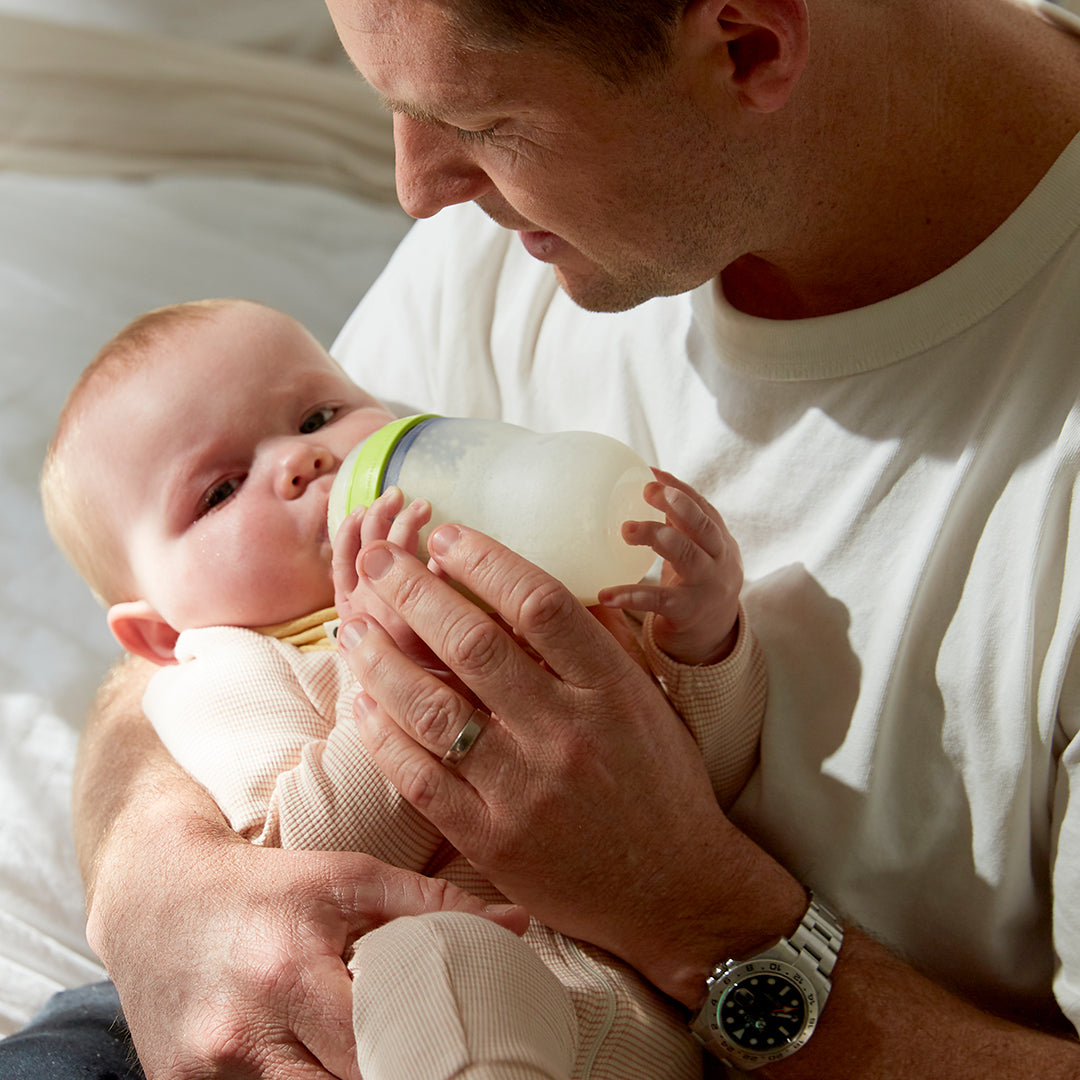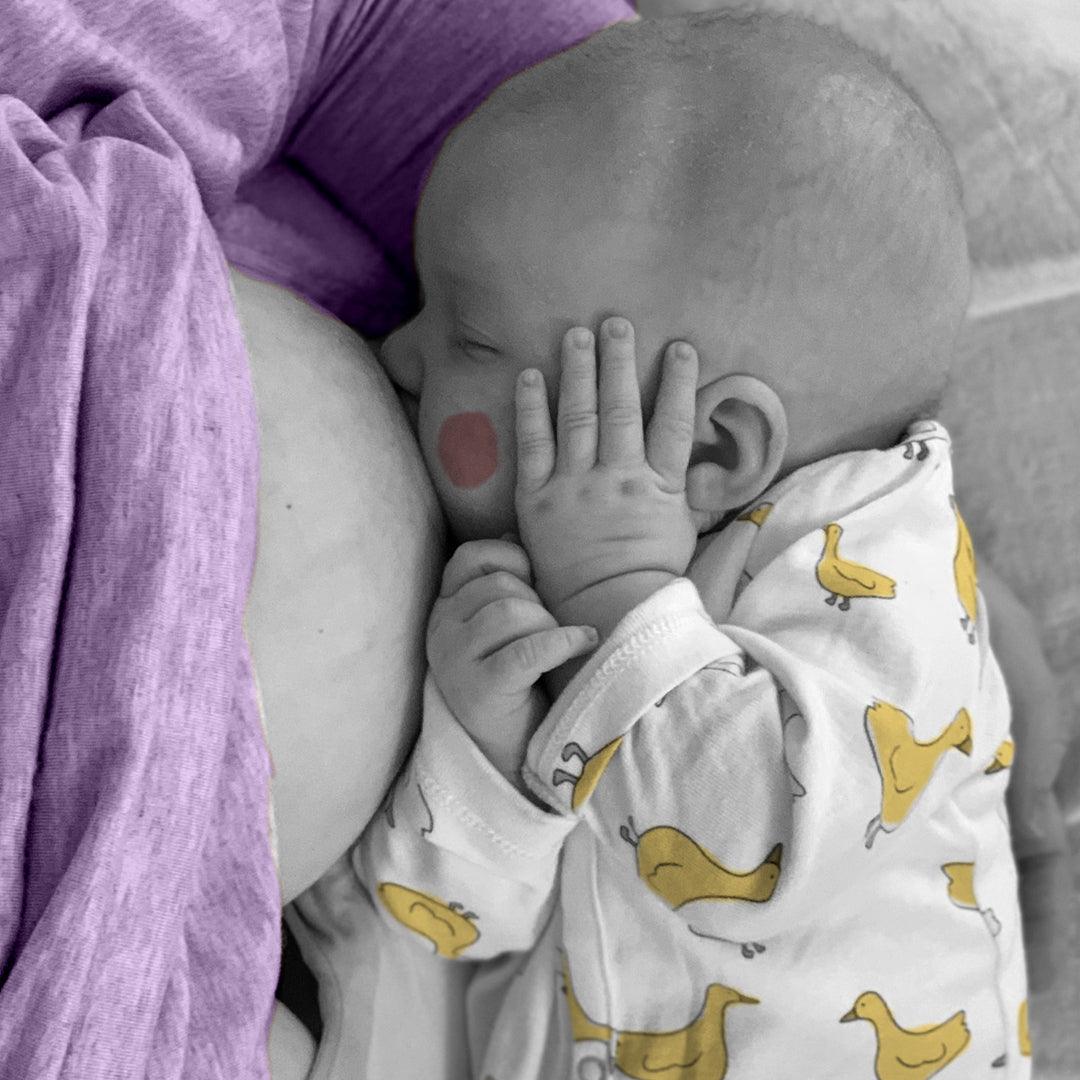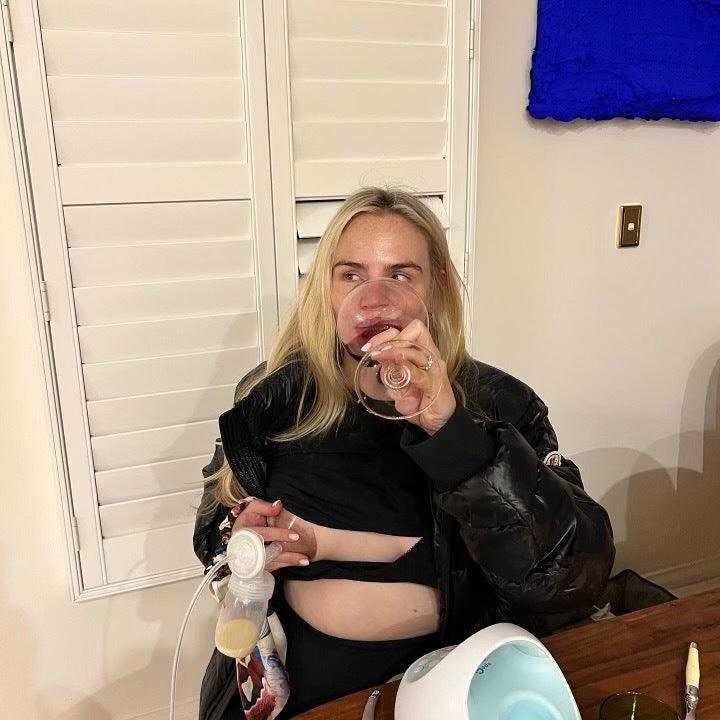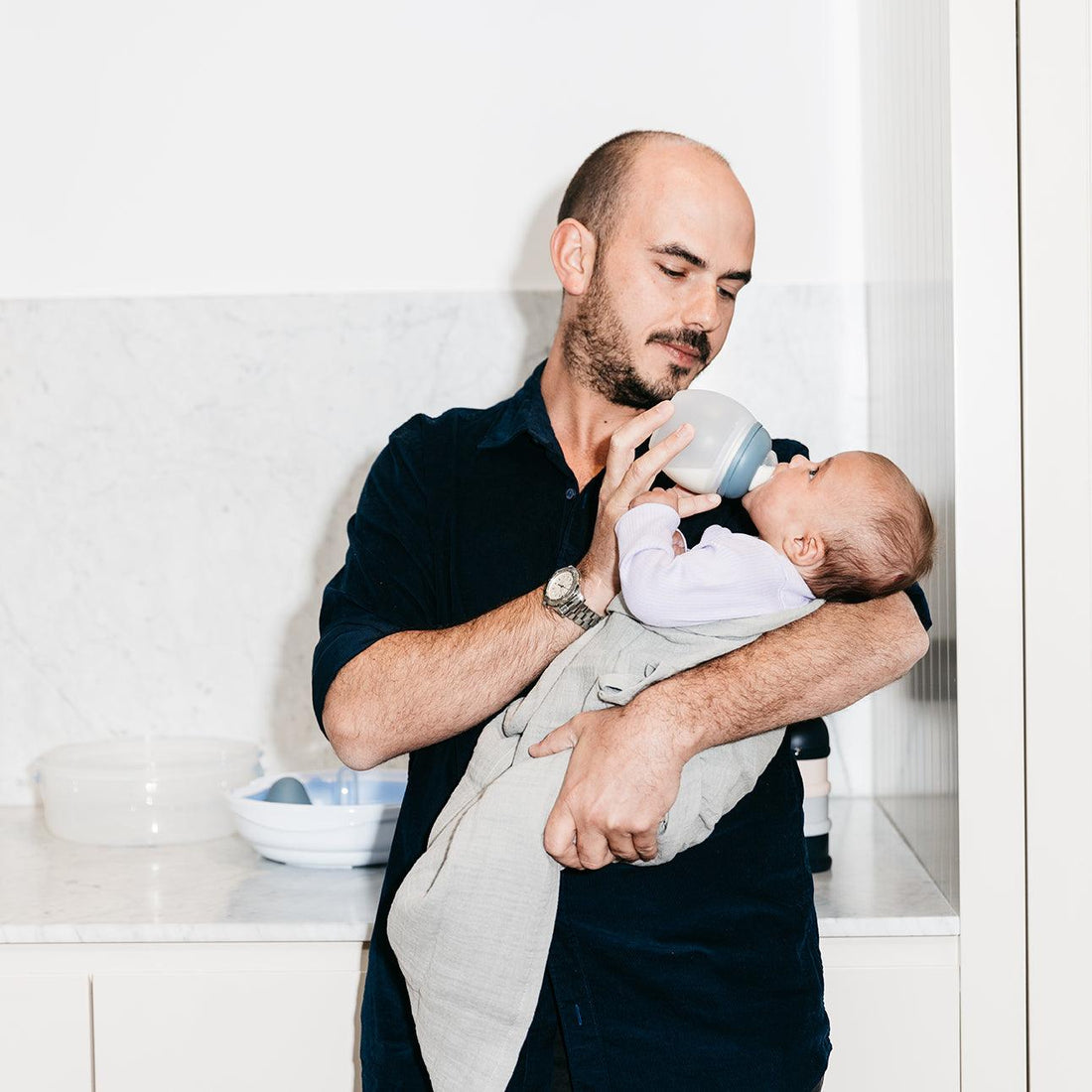Because fed is best.
Your baby is crying — it’s hungry. What do you do? This is not a trick question: obviously, you feed it. Because you’re a parent, and part of the gig is feeding your baby.
However, in society, there is still so much pressure on how to feed them. If we’re doing our fundamental job as parents by nourishing our baby, does it matter if it’s breast, bottle, or mixed? Formula has come a long way, so why is there still so much shame around formula feeding? It’s both societal and governmental, and is deeply ingrained.
The regulations
Let’s back up a bit and talk about some of the Australian regulations regarding infant formula. If you’re a soon-to-be-mother or someone who has exclusively breastfed it may come as a surprise to learn that formula cannot legally be advertised in Australia by manufacturers and importers. In addition to that, those companies cannot use the word ‘formula’ in social media posts or show a baby (under 12 months) in their imagery. But perhaps the most jarring is that customers buying formula from a formula brands’ website are required to tick a consent box confirming that they understand that “breast is best” before they enter the site — and the same messaging needs to be displayed on the pack.
These operational requirements came into play in 1981 when the World Health Organization developed the International Code of Marketing of Breast-milk substitutes, of which Australia was an early signatory. And since 1992 Australia has followed the Marketing in Australia of Infant Formula: Manufacturers and Importers Agreement (MAIF Agreement) which sets out the regulations. It was initially set up in response to an ethically abhorrent situation concerning formula use in a third world country back in the ‘70s. Nestle (who make formula) was accused of getting mothers in under-developed countries ‘hooked’ on formula, with devastating repercussions. Especially in poorer communities where formula would be watered down to make it last longer or where contaminated water was an issue, it was causing illness and in some cases even death. So the code is there for a reason: to protect the health of mothers and their babies, but what the regulations lack is nuance and perhaps even modernity – a lot has changed in 50 years — including the formula standards.
Infant formula is (rightly) one of the most highly regulated industries in Australia and must meet nutritional requirements for it to pass the Food Standards Australia and New Zealand (FSANZ). The research and development that goes into formula these days is advanced and considered, and in the case of some brands, like Mumamoo it’s developed with experts like paediatric and nutritional scientists.
The Co-owner of Mumamoo, Miriam Weir, says “we are pro-support for all parents and advocate for being able to make informed decisions - we aren’t sitting here wanting the MAIF to be abandoned and all formula companies to be able to advertise, but we do believe the health system could be better placed to support women who need to know more or choose to use it.” As a business they of course comply with the standards because they understand the importance of promoting and advocating for breastfeeding. But, equally she also says “we are also advocating for information to be made available through the health system. Currently, unless your baby has a dairy allergy or the mother is showing very severe signs of PND, many parents are left on their own to find the information they are looking for, because they can’t access any through the health system.”
For Miriam, this is not about pushing formula onto mothers (she herself has two children who were primarily breastfed in addition to one formula bottle at night) but about the system not trusting mothers to make an informed decision about what’s best for their family. And therein lies both the problem — and also the point: most mothers do not set out with the intention of formula-feeding their babies, and we all understand that breastfeeding should be considered first. In fact, as Miriam points out Australia’s breastfeeding initiation rates are high (96%!), but this drops to 15% by five months (per the Australian Breastfeeding Association). “We know there are many varied, complex and simple reasons (including choice!) why a parent might use infant formula and all of them are valid,” says Miriam. But the bottom line is: just like every aspect of parenting, the choice should ultimately land with us, and we should not be made to feel guilty for it.”
“We advocate for better access to lactation services as well as information about infant formula - which the health system is currently actively discouraged from doing. Currently, unless your baby has a dairy allergy or the mother is showing very severe signs of PND, parents are left on their own to find the information they are looking for, because they can’t access any through the health system.”
The Shame Game
Two of The Memo staffers have experienced this guilt and shame first-hand when they decided to use formula for their babies.
Lou is a mother of two and exclusively breastfed her kids to 9 and 7 weeks respectively when she introduced a formula bottle because her supply was low. “In those early newborn days, both my babies were very unsettled and grizzly in the afternoon and evening and it didn't take a rocket scientist to work out that they were hungry and required more than what my breasts could provide,” she says.
So when she introduced formula to her babies, despite knowing that they were full, happy and that she was doing her job she did not escape the external judgement. “I remember saying to the maternal health nurse that I thought my daughter was still hungry and that I didn't have the supply and wanted to introduce a bottle. Her response was to ‘be cautious because it's a slippery slope when you start a bottle as it will impact your supply even more’. I wish I didn't let that judgement impart a sense of shame or failure on myself but ultimately it did. There was no support from them whatsoever during my breastfeeding experience and I had to seek the support elsewhere. The company line is clearly 'breast is best' and the council needs to overhaul this and modernise,” she says. “I'm glad I trusted my gut and decided fed was best.”
“Both my babies were very unsettled and grizzly in the afternoon and evening and it didn't take a rocket scientist to work out that they were hungry and required more than what my breasts could provide.”
Pip is also a mother of two, and had two very different feeding journeys. With her daughter it was wonderful, and she breastfed for 9 months. But her son was a different story. “He suffered terribly with colic and for the first 4 months he just screamed. In an aim to mitigate excess gas I expressed to bottle fed him until 15 weeks old. This wasn’t helping his colic and so was put on an elimination diet to remove any foods that might be adding to the digestion issues. However this was making me quite unwell both mentally and physically. We moved to exclusively formula at four months and haven’t looked back.”
What Pip has hit on here is another factor at play: the emotional and physical drain on mothers who are desperately trying to breastfeed but for whatever reason cannot— which of course makes them feel like they’re failing. It’s a dangerous and unhelpful cycle that places an unnecessary pressure on mothers. “The journey to a happy and healthy mum and baby led to formula sooner than planned. I was so physically and emotionally drained from our feeding journey that I didn’t hesitate to transition. It felt right.” But, like Lou, she too experienced the judgement and need to justify her choice. “I felt like I had to really explain how unwell Ted was to anyone that asked or assumed that I was still breastfeeding.” she says.
“A full, happy baby is the end goal and it doesn't matter if it's achieved via a boob or a bottle.”
For both women, it was not the decision they had planned, but one that ultimately worked out better for their family, and what they’d both like to see in the future is better education around the choices for feeding your child. As Lou says, “I think it's important to educate people around breastfeeding and that it's not always successful so we can manage expectations better. There are lots of hurdles and for many women like myself, the body simply cannot produce enough milk for their babies. A full, happy baby is the end goal and it doesn't matter if it's achieved via a boob or a bottle.”
This sentiment is echoed by Miriam who says “it is — and I cannot stress this enough —possible to be pro-breastfeeding, yet anti formula shaming. They are not mutually exclusive. We are absolutely all for breastfeeding, it can be a wonderful experience and breastmilk is incredible. The unhealthy insistence that formula be an absolute last resort inevitably frames formula as shameful and saddles new parents with the unbearable weight of stigma and judgement if they need or choose to use formula.”


















